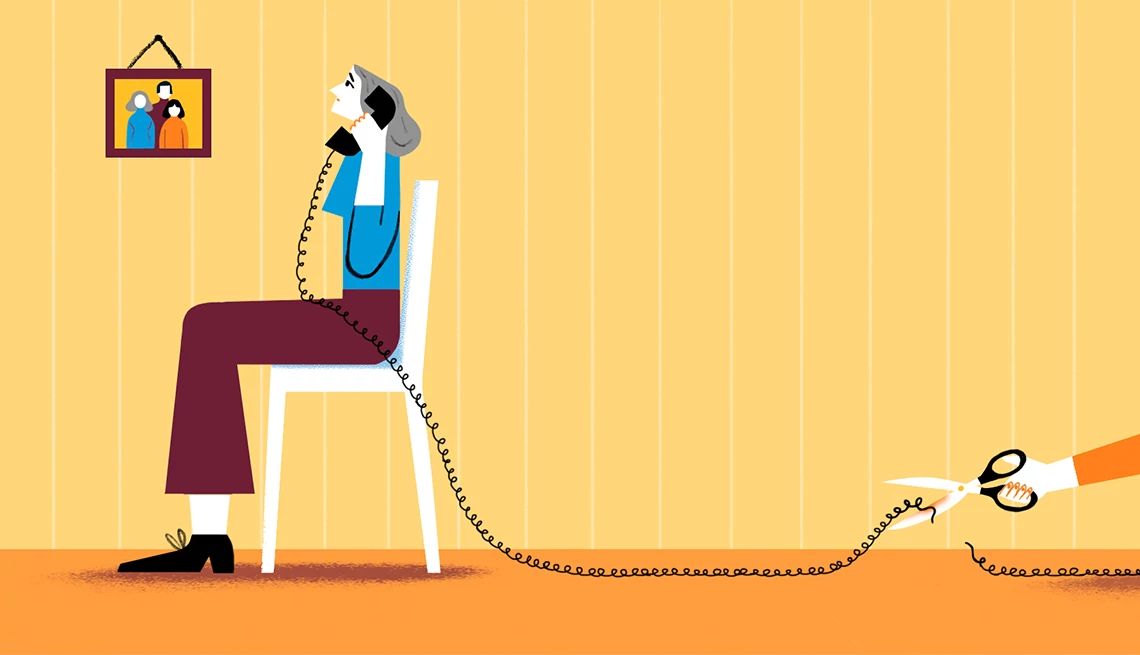Play all audios:
_WELCOME TO ETHELS TELL ALL, WHERE THE WRITERS BEHIND_ THE ETHEL _NEWSLETTER SHARE THEIR PERSONAL STORIES RELATED TO THE JOYS AND CHALLENGES OF AGING. COME BACK EACH WEDNESDAY FOR THE LATEST
PIECE, EXCLUSIVELY ON __AARP MEMBERS EDITION._ I do not deny that some parents are simply evil, awful people who never should have had kids in the first place. I just don’t think I happen
to be one of them — something my 20-something daughter might disagree with. Since I am actively trying to heal our estrangement, I’m writing this anonymously — because I’m not the only
parent out there who needs someone to talk to about this, and I am unwilling to harm my child with any unwanted public attention. But yes, the number of young and midlife adults choosing to
have no contact with their families seems to be growing. There are support groups, counseling programs, TikTok videos, books and YouTube channels dedicated to servicing both sides of the
conflict and, some would say, also fueling it with heated rhetoric. Until my daughter stopped communicating with me, I would have said family disagreements have always occurred, and today we
have the internet amplifying the noise. But something else — something bigger — has changed. Nowadays, the parental offense doesn’t need to rise to the level of inflicting sexual or
physical harm — or even heaping verbal abuse on your child. It also doesn’t limit itself to families who reject their children’s sexual orientation or gender identity or who try to impose
their religious beliefs on them. There doesn’t have to be an intention to inflict pain, nor is awareness of wrongdoing on the part of the parent even necessary. In many cases — like my case
— I didn’t even know the nature of my crimes, only the results. My daughter, who clung to me like an extra appendage growing up, told me to just stay out of her life. Initially, she wanted
no contact whatsoever but in recent weeks has softened her stance to contact me — though only on her terms. Now that my heart has stopped hemorrhaging and I’ve had some time to think things
over, I would say that what we are witnessing is much bigger — it’s a challenge to the societal norm that having a family is a good thing. Those who encourage the nuclear option — to just
stop communicating with your family members if you deem them “toxic” to your well-being — believe it can be healthier to create a new “family” with friends and peers. MORE FROM ETHELS TELL
ALL Karl Pillemer, a Cornell gerontologist, conducted the first large-scale survey in 2019 on the subject. The survey of adults 18 and older found that 27 percent of respondents reported
they are estranged from a relative. Pillemer found it relatively common for people in their 20s to estrange themselves from a parent, though he noted that in many cases, the estrangement
is only temporary. I certainly hope mine will be, and I’m ready to do whatever it takes to mend us. To me, it’s like somebody moved the goalposts for parenting. There has been a
generational shift in what counts as “abuse” and “trauma.” Practices that felt like normal parenting to me were relabeled by my daughter and her peers as “extreme helicopter parenting.” I
was “overprotective to the point of abuse,” she said, and she was “traumatized” and had “lost self-confidence” from being “second-guessed about everything, all the time.” She was tired of me
weighing in with advice about “every little thing.”

